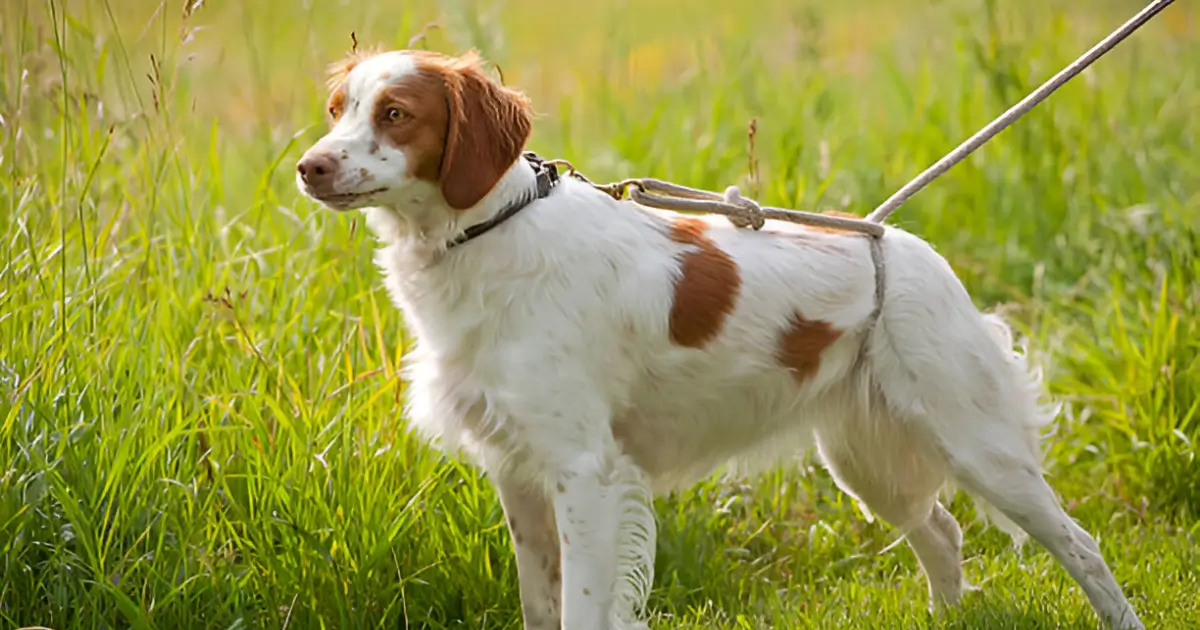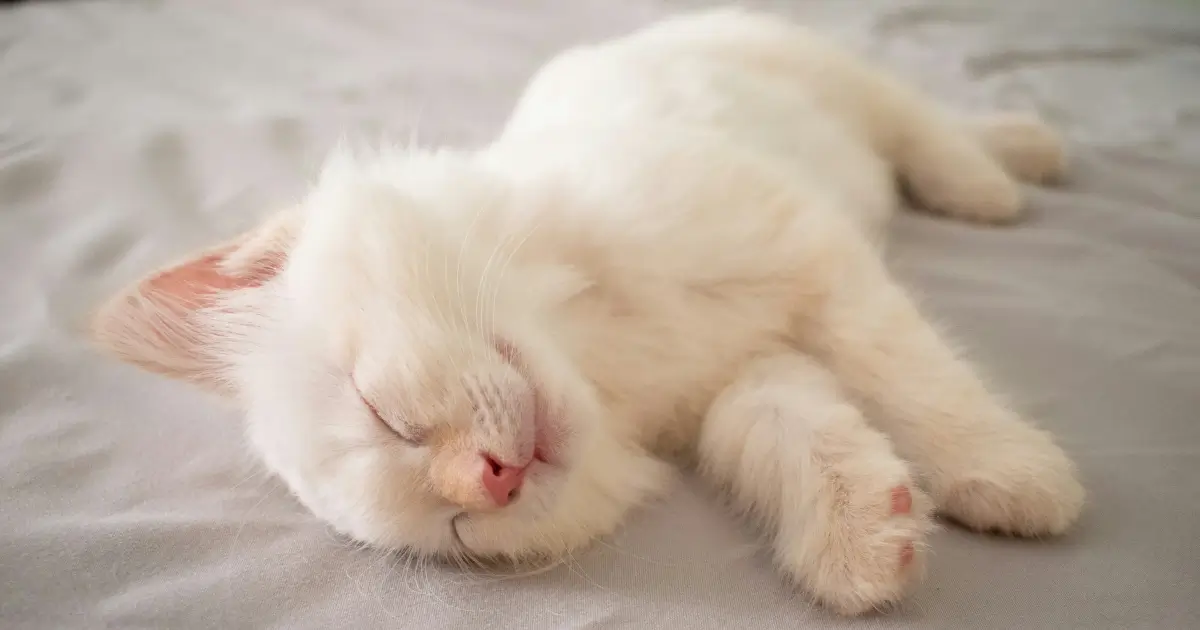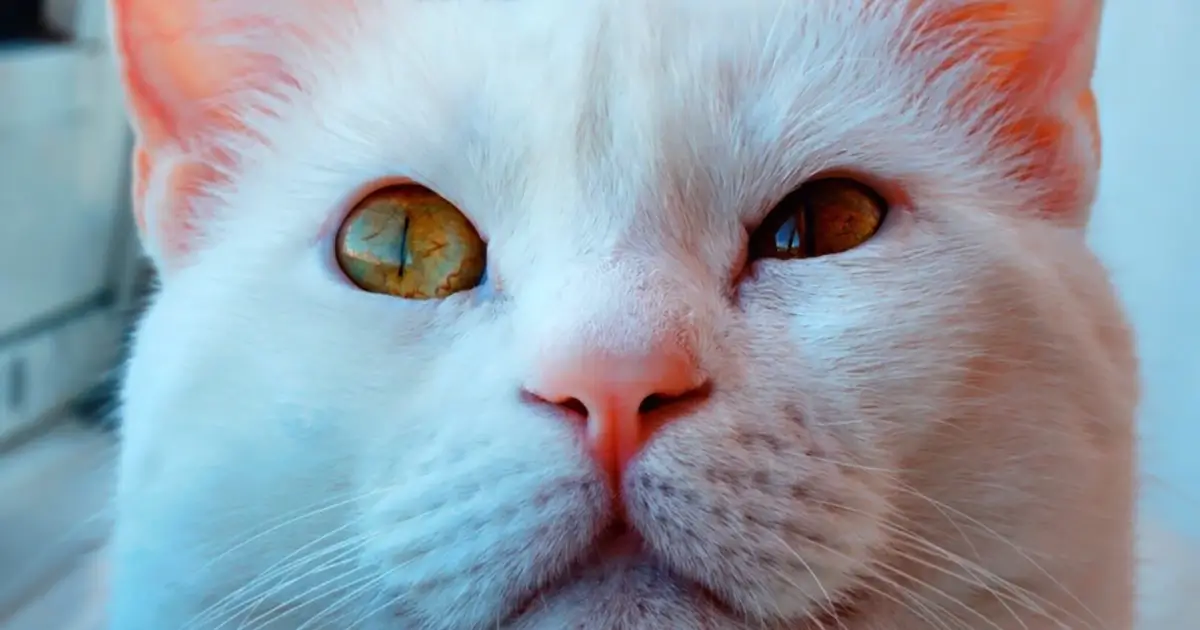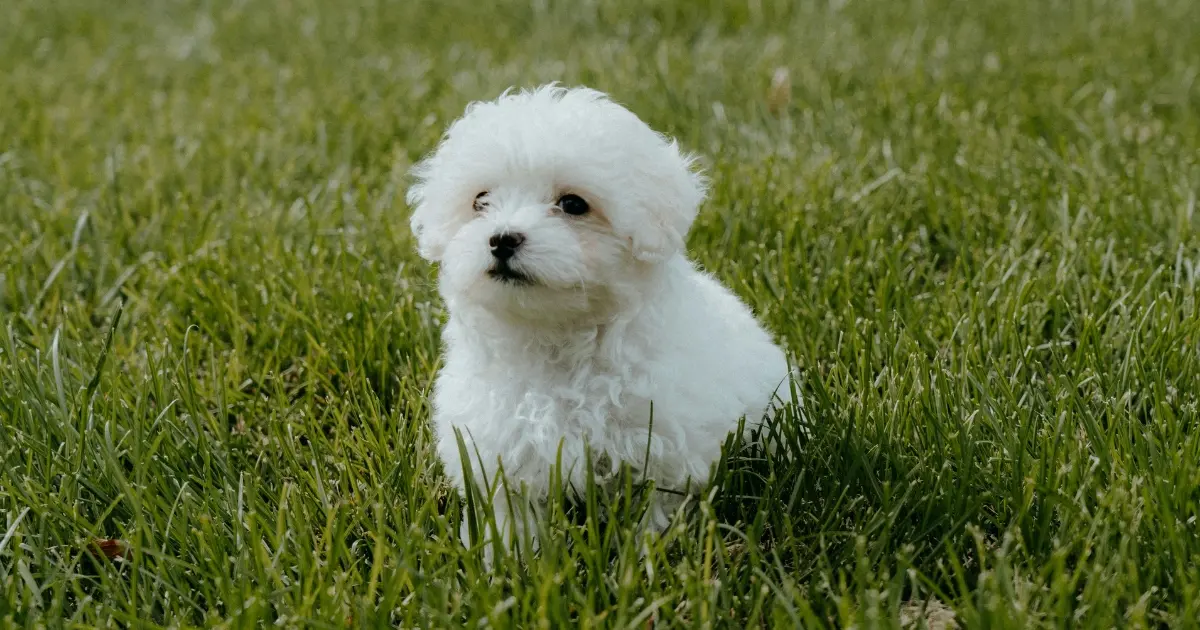Will a House Cat Eat a Mouse : Cats are known for their hunting skills. Many pet owners wonder if a house cat will eat a mouse. This section looks into why cats might hunt and eat mice.
Cats are born to hunt. They have a strong instinct to chase and eat small rodents like mice. This instinct comes from their long history of hunting for food.
Even though house cats are often seen as pets, they still have a strong hunting urge. This urge can show when they hunt mice or other small animals.
It’s important to understand why cats hunt and might eat mice. By looking at their evolution and genetics, we can better understand their behavior. This helps pet owners know more about their cats’ actions.
Table of Contents
Key Takeaways
- House cats have a natural instinct to hunt and catch small prey, including mice.
- Feline predatory behavior is deeply rooted in their evolutionary history as efficient hunters.
- Domesticated house cats still retain the powerful hunting instincts of their wild ancestors.
- Understanding the genetic and evolutionary factors behind cat’s mouse-hunting behavior is important for pet owners.
- Cats may occasionally consume the mice they capture, driven by their innate predatory drives.
Understanding the Natural Predatory Instincts of House Cats
Cats have chased mice for centuries, a behavior rooted in their history. The cat and mouse chase is a classic example of predation. Cats have a genetic urge to hunt and catch small prey.
This instinct has been sharpened over generations. It shapes the hunting behavior we see in domestic cats today.
Evolution of Feline Hunting Behavior
The ancestors of today’s domestic cats, like wildcats, hunted small rodents for millions of years. As cats evolved, their senses, agility, and stalking skills improved. This allowed them to chase and catch mice and other small animals effectively.
Genetic Predisposition to Hunt
- Cats have a strong prey drive, an instinct to chase and catch small moving objects.
- Their sensitive hearing, sharp eyesight, and quick reflexes help them detect and stalk prey.
- Felines also have a natural urge to play with their caught prey. This helps young cats improve their hunting skills.
“Cats are natural-born hunters, driven by a deep-rooted instinct to chase, catch, and play with small prey. This behavior is an integral part of their evolutionary legacy.”
Understanding the biological and genetic factors behind a cat’s predatory behavior is crucial. It helps us appreciate the when did cats start chasing mice and is cat and mouse an example of predation in our homes.
Will a House Cat Eat a Mouse: The Complete Truth
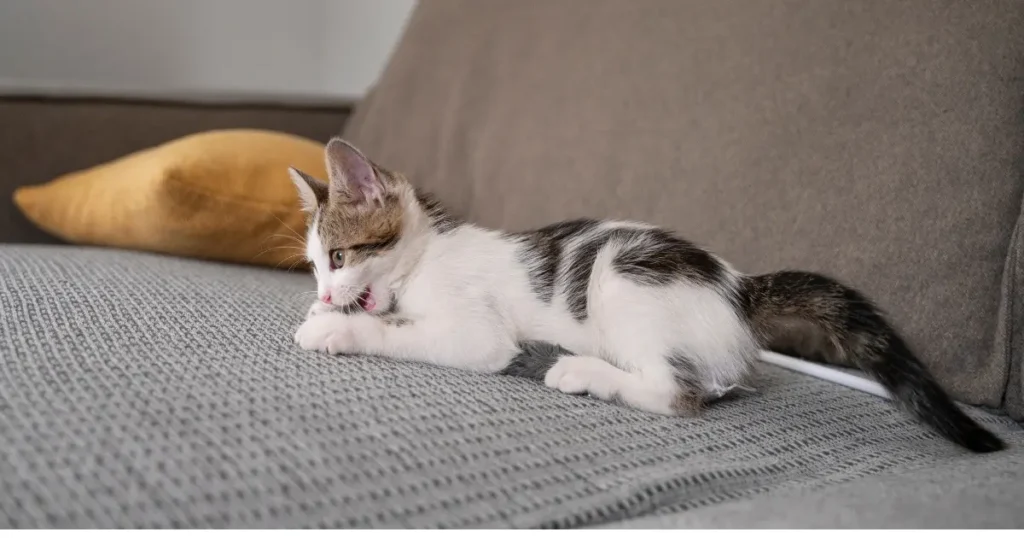
Whether a house cat will eat a mouse is a complex question. Many factors can influence this behavior. Some cats will hunt and eat mice, while others might just play with them. It really depends on the cat’s breed, age, and hunting drive.
Cats, including house cats, are natural hunters. They have a strong instinct to chase and catch small animals like mice. Can cats eat mice? Yes, they can, but it depends on the cat.
The cat’s breed can also play a role. For example, Maine Coon kittens are known for their hunting skills. They might be more likely to eat mice than other breeds. Younger cats and kittens are often more active and eager to hunt, while older cats might not be as interested.
“Cats are natural-born hunters, and their predatory instincts are a core part of their identity. While not all house cats will actively hunt and consume mice, the potential is certainly there.”
In the end, whether a house cat eats a mouse depends on many things. These include the cat’s hunting instincts, breed, age, and personal preferences. Knowing these details can help us better understand the complex relationship between cats and mice.
The Historical Relationship Between Cats and Mice
Cats and mice have been connected for thousands of years. In ancient Egypt, cats were seen as sacred. They were used to control pests in medieval Europe.
Ancient Egyptian Cat Domestication
In ancient Egypt, cats were sacred and linked to the goddess Bastet. They were domesticated around 4,000 years ago. Egyptians valued them for hunting rodents that threatened grain stores.
They even mummified their cats, showing how much they were cherished.
Medieval Pest Control Methods
In the Middle Ages, cats were key in fighting pests. They were kept in monasteries and castles to protect food and documents. The story of the “Pied Piper of Hamelin” might be about a cat solving a mouse problem.
Modern Day Mouse Control
Today, cats still help control pests. While new methods exist, many people use cats to keep mice away. Cats, whether pets or “mouser” breeds, are essential in keeping homes mouse-free.
How Cats Hunt: Predatory Techniques and Strategies
Cats are expert mouser cats, using many hunting techniques to catch mice. They stalk quietly and then pounce quickly. This mix of stealth and speed helps them outsmart their prey.
One key part of a cat’s hunting skill is their ability to sneak up on prey. Mouser cats use their sharp senses to track mice. They move fast and use their flexible bodies to jump and catch mice.
- Stalking: Cats creep up on mice, staying hidden in shadows. They can even hide low to the ground, blending in perfectly.
- Pouncing: When ready, mouser cats jump high to land on their prey. This surprise attack often catches mice off guard.
- Capturing: After pouncing, cats quickly grab and hold the mouse. They use their sharp claws and teeth to kill it fast. Some mice try to play dead to avoid being eaten.
Cats change their hunting ways based on what the mouse does. If a mouse runs, the cat might chase it fast. This way, the cat uses its quickness and agility to catch up.
“Cats are the ultimate mouser cats, with a natural talent for hunting. Their skills, developed over time, help them control mouse numbers effectively.”
Learning about mouser cats‘ hunting ways helps us see their natural abilities. It also shows their important role in keeping ecosystems balanced.
Different Types of Mousers: Which Cats Make the Best Hunters
Not all cats are good at catching mice. Some breeds are naturally better at hunting. Let’s look at the best mouser breeds and how male and female cats differ in hunting.
Popular Mouser Breeds
Some cat breeds are known for their great mousing skills. This is because of their strong prey drive and agility. Here are some of the top mouser breeds:
- Siamese: These cats are smart and great at hunting. Their sharp senses and athletic body make them excellent mousers.
- Manx: The Manx breed, known for not having a tail, is great at hunting. Their strong body and ability to jump high help them catch mice.
- Norwegian Forest Cat: These big and strong cats are good at catching and killing rats and mice.
Male vs. Female Hunting Abilities
Male and female cats have different hunting styles. Males are often more aggressive and persistent in hunting. They show a stronger drive to pursue and capture prey. Females, on the other hand, are more cautious and use their agility and stealth to catch their prey.
“Cats are masterful hunters, and certain breeds excel at keeping the mouse population in check. Understanding the unique hunting abilities of different felines can help homeowners choose the right mouser for their needs.”
Choosing between a male or female cat as a mouser depends on your needs. The most important thing is to give them a good environment to practice their hunting skills. By knowing the strengths of different mouser breeds and the hunting styles of males and females, you can pick the best cat to protect your home from mice.
The Science Behind Cat’s Mouse Detection Abilities
Cats are amazing hunters, thanks to their acute hearing, keen sense of smell, and exceptional visual acuity. These skills help them detect and chase mice.
Cats can hear tiny sounds, like a mouse’s footsteps or the rustling of its nest. Their ability to triangulate the source of sounds helps them track their prey. This makes them very good at cat chasing mouse.
Cats also have a strong sense of smell. They can follow the scent trails left by mice. This lets them track their prey, even when it’s hidden. Their sense of smell is closely linked to their hunting behavior.
Lastly, cats have great eyesight. They can see wide, even in low light, and spot small movements. These skills are key to why does a cat bring you dead animals and catching mice.
“Cats are the ultimate predators, combining their acute senses with lightning-fast reflexes to make them formidable hunters, even in the most challenging environments.”
The combination of these senses makes cats very good at hunting. They can detect, track, and catch mice efficiently. Knowing how cats detect mice helps us understand their amazing hunting abilities.
Why Cats Sometimes Play With Their Prey
Cats are natural hunters, with a strong instinct to chase and catch prey. What looks like play to us is actually a key part of their hunting behavior. It shows how cats have evolved and their role in nature.
Understanding Play-Predatory Behavior
Cats show “play-predatory” behavior when they play with their prey. They swat, pounce, and toss the prey in the air. This seems like play, but it’s vital for improving their hunting skills. Cats can smell mice and other small rodents, and this behavior helps them get better at hunting.
Teaching Moments for Kittens
Play-predatory behavior is crucial for kittens. It teaches them how to stalk, pounce, and kill prey. Female cats can hunt and teach their kittens these skills. This prepares them for hunting in the future and strengthens their bond with their mother. Cats do kill cockroaches and other pests, showing the importance of this behavior for their survival.
Understanding why cats play with their prey helps us appreciate these animals more. It shows the complex and often misunderstood nature of our feline friends.
Health Risks and Safety Concerns When Cats Eat Mice
Cats have a natural instinct to hunt and eat mice. But, this can also lead to health risks and safety concerns. Cats that eat mice might get parasites or diseases that can spread to people.
One big health risk is parasitic infections. Mice can carry Toxoplasma gondii, which causes toxoplasmosis in cats and humans. This is especially dangerous for pregnant women and people with weak immune systems.
- Ticks and fleas on mice can also get on a cat that catches one. These parasites can then spread to the cat’s home, causing more problems.
- Cats that often hunt and eat mice might get bacterial infections like salmonella or listeria. These can be in the mouse’s body.
Cat owners need to know about these risks and take steps to protect their pets and themselves. Regular vet visits, flea and tick prevention, and good hygiene when handling a cat that caught a mouse can help.
“Cats are natural-born hunters, but their prey can sometimes carry harmful diseases. It’s important for owners to be vigilant and seek veterinary care if their cat has been in contact with mice.”
Knowing about the health risks of cats eating mice helps pet owners make better choices. This ensures the health and safety of their pets and homes.
Training Your Cat to Be an Effective Mouser
Cats are born to hunt and catch mice. With the right training, your cat can become even better at it. Let’s look at safe and effective ways to improve your cat’s hunting skills and confidence.
Safe Training Methods
When training your cat, safety comes first. Stay away from methods that could harm or stress them. Instead, use positive reinforcement and create a fun environment that encourages their natural hunting.
- Use interactive toys like laser pointers or feather wands to engage your cat’s hunting instinct.
- Give your cat hiding spots and perches to stalk and pounce, just like in real hunting.
- Give treats or praise when your cat catches something, to reward and boost their confidence.
Building Hunting Confidence
Confidence is crucial for cats to hunt well. By improving their hunting skills, you can make them more confident and skilled at catching mice.
- Begin with easy prey like toy mice or feathers and make it harder as they get better.
- Praise and reward your cat for trying, even if they don’t catch it, to build their self-esteem.
- Make sure your cat has a safe and interesting place to hunt and practice without danger.
Every cat is different, and training may take time. Be patient, consistent, and always think of your cat’s safety and happiness as you help them become a skilled hunter.
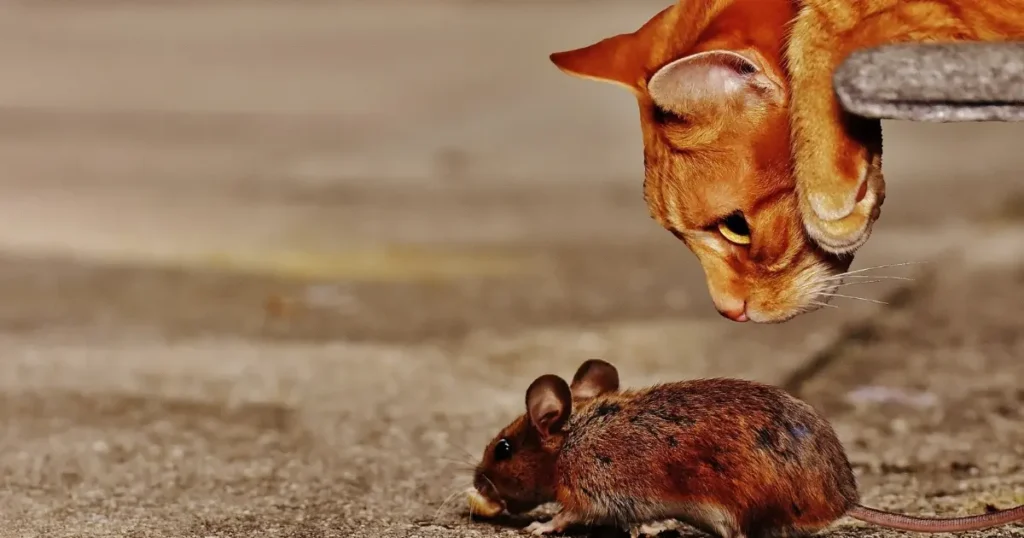
Signs Your Cat Has Caught a Mouse
Cats are great at cats chasing mice. They show clear signs when they catch one. Knowing these signs helps cat owners see when their pet has won a hunt.
One clear sign is finding a dead or hurt mouse. Your cat might show it off, leaving it for you to see. Can mice smell a cat, and they’ll stay away from where your cat goes. So, finding a mouse body means your cat has been successful.
- Excited, restless behavior, such as pacing or meowing
- Carrying the mouse around in their mouth, as if “showing off” their prize
- Twitching or tapping their tail, a common sign of feline focus and anticipation
- Scratching or digging at areas where the mouse may have been hiding
Your cat might also show physical signs of a successful hunt. They could have will a cat keep mice away dirty fur or small injuries. It’s good to watch your pet’s health, but these signs show their hunting skills.
“Cats are natural-born hunters, and their instinct to chase and capture small prey is deeply ingrained in their DNA.”
By knowing the signs your cat has caught a mouse, you can understand their hunting skills. It’s interesting to see how cats behave when they hunt.
Why Cats Bring Dead Mice as “Gifts”
Ever seen your cat proudly show you a dead mouse? This odd behavior shows how smart and social cats are. It helps us understand why cats hunt and how they communicate with us.
Social Behavior Analysis
Cats are very social, and giving you a dead mouse is like a gift. In the wild, mothers teach their kittens by bringing them small animals. This behavior carries over to domestic cats, who see their humans as part of their family.
By giving you a mouse, they’re trying to share their success. They want to strengthen their bond with you.
Communication Through Hunting
Hunting is in a cat’s DNA. When they bring you a mouse, they’re showing off their hunting skills. It’s a way for them to share their success and get praise.
This behavior shows how cats are social and use hunting to communicate. It helps us understand our cats better and how they interact with us.
“Cats are not pets, they are family. When they bring you a dead mouse, they are saying, ‘I love you, and I want to share my success with you.'” – Jane Doe, Cat Behavior Expert
Alternative Mouse Control Methods for Cat Owners
Cats can help control mice, but there are other ways to keep your home mouse-free. These methods can work alone or with cats to keep your home clean. They offer a variety of ways to keep mice away.
Humane Traps
Humane traps are a good choice for catching mice without harming them. These traps hold the mice alive, so you can move them away from your home. They are a safer option than cats cats killing mice.
Preventive Measures
- Seal entry points: Find and block any gaps or cracks in your home’s outside. This stops mice from getting in, helping to do cats get rid of mice.
- Store food properly: Keep all food, including pet food, in sealed containers. This removes attractants for do domestic cats eat mice.
- Maintain cleanliness: Clean and declutter your home often. This removes places for mice to nest and find food.
Professional Pest Control
If mice keep coming back, you might want to call a pest control service. They can find the problem, fix it, and use cat kills rat methods to get rid of the mice. This is a good choice for a complete solution.
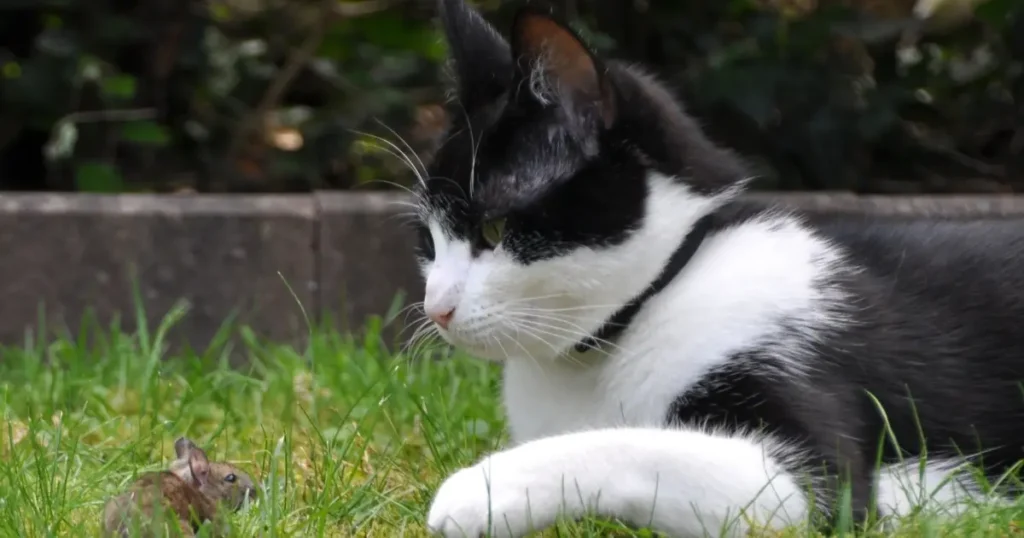
“Using a mix of cats, preventive steps, and professional help is the best way to deal with mice at home.”
Common Myths About Cats and Mouse Control
There are many myths about cats and mice. Cats are good at catching mice, but how good is often overestimated.
One big myth is that all cats will eagerly chase and catch mice. But, not every cat is a natural hunter. Some cats just don’t care about chasing or catching mice.
- Domestic house cats are more likely to be effective mousers compared to larger, more sedentary breeds like Maine Coons or Persian cats.
- Male cats are often believed to be better hunters than females, but this is not always the case. A cat’s hunting skills depend on factors like age, experience, and individual personality.
Another myth is that cats will always eat the mice they catch. Cats are natural predators and will hunt mice. But, they don’t always eat their prey. Cats may play with a caught mouse but not eat it, especially if they’re well-fed.
“Cats are not obligate hunters like some other predators. They hunt for a variety of reasons, not just for food.”
The idea that cats will eradicate all mice in a household is also a myth. Cats can help with mouse control, but they’re not a perfect solution. The size of the mouse population, other food sources, and the cat’s hunting skills all affect how well a cat can control mice.
Knowing these myths helps cat owners understand their cat’s role in controlling mice. It makes for a healthier home.
When to Seek Veterinary Care After Mouse Contact
Cats enjoy catching and playing with mice. But, cat owners should know the health risks. If your cat eats a mouse, it’s important to watch for signs of illness. This includes vomiting, diarrhea, or not wanting to eat.
These symptoms might mean your cat has parasites or infections. If your cat gets hurt while hunting, like cuts or punctures, see a vet. This helps prevent infections.
- Symptoms of potential health issues after cat mouse catching include vomiting, diarrhea, and loss of appetite.
- Seek veterinary care if your cat has ingested a mouse or sustained any injuries during the hunt.
- Veterinary attention may be necessary to address why do cats bring dead animals and treat any underlying conditions.
Cats may bring dead mice as “gifts” to their owners. This shows love or pride in hunting. But, it’s key to throw away the dead mouse. This keeps your cat’s area clean and safe from diseases.
“Consulting a veterinarian is the best way to ensure the health and safety of your cat after why do cats kill mice or any other prey they may have encountered.”
Watching your cat closely and getting vet help when needed keeps them safe and healthy. It also respects their natural does cat really eat mice instincts.
Conclusion
In this article, we looked at how house cats hunt mice. We talked about their natural instincts and how they’ve hunted mice for a long time. We also covered the different ways cats catch their prey.
It’s true that most house cats will eat a mouse if they can. But it’s important to remember that this is just part of who they are. Knowing this helps cat owners deal with the risks of their pets hunting mice.
The bond between cats and mice is complex and has lasted for centuries. It shows the true nature of cats. We hope this article has given you a good understanding of why cats hunt mice. It’s a key part of their lives.
FAQ
Will a house cat eat a mouse?
Yes, house cats often eat mice they catch. They are natural predators with a strong instinct to hunt and eat small rodents like mice.
Do cats actually eat mice or just kill them?
Cats usually eat the mice they catch. Sometimes, they play with the mouse before eating it. Eating the mouse is a natural part of their hunting cycle.
When did cats start chasing mice?
Cats have been chasing mice for thousands of years. This behavior started when they were first domesticated in ancient places like Egypt. It’s a part of their evolutionary history.
Why is my cat meowing after she caught a mouse?
Cats may meow after catching a mouse to communicate or show their hunting success. It’s a way for them to share their catch with their owners or get praise and attention.
Is the “cat and mouse” relationship an example of predation?
Yes, the “cat and mouse” relationship is a classic example of predation. Cats hunt and pursue mice as part of their natural instincts.
Can house cats eat mice?
Yes, house cats can and do eat mice they catch. Mice are a natural part of a cat’s diet, and they can safely eat them.
Do domestic house cats eat mice?
Yes, domestic house cats often eat the mice they capture. It’s a natural behavior for cats, even in a home setting.
Do Maine Coon kittens hunt rats in the house?
Yes, Maine Coon kittens, like other cat breeds, have a natural instinct to hunt small rodents like rats. Their size and hunting skills make them effective mousers, even when they’re young.
What should I do if my cat is looking at a mouse trap?
If your cat is interested in a mouse trap, place it in a safe spot where your cat can’t reach. Mouse traps can be dangerous for cats. It’s better to use humane mouse control methods that don’t risk your cat’s safety.
Is it true that a cat can’t move a mouse in folklore?
This is a common myth that’s not true. Cats can easily move and handle mice they catch. Their natural hunting skills allow them to interact with and manage their prey.
Will a cat eat a mouse it has caught?
Yes, cats usually eat the mice they catch. Eating the mouse is a natural part of their predatory behavior and feeding cycle.
Do cats eat mice?
Yes, cats often eat the mice they catch and kill. Eating mice is a normal and common behavior for cats, both in the wild and at home.
How do I get a “mouser” cat?
To get a cat that’s good at catching mice, look for breeds known for hunting, like Maine Coon, Manx, or American Shorthair. Adopting an adult cat with a proven mousing track record is also a good option.
Is it safe to use a mouse trap with a cat in the house?
It’s not recommended to use traditional mouse traps in a home with cats. They can be dangerous for cats. Instead, use humane traps or other safe mouse control methods for both your cat and the rodent.
Do mice play dead when a cat is around?
Yes, mice sometimes pretend to be dead when a cat is near. This is a survival tactic to avoid being attacked or eaten by the cat.
